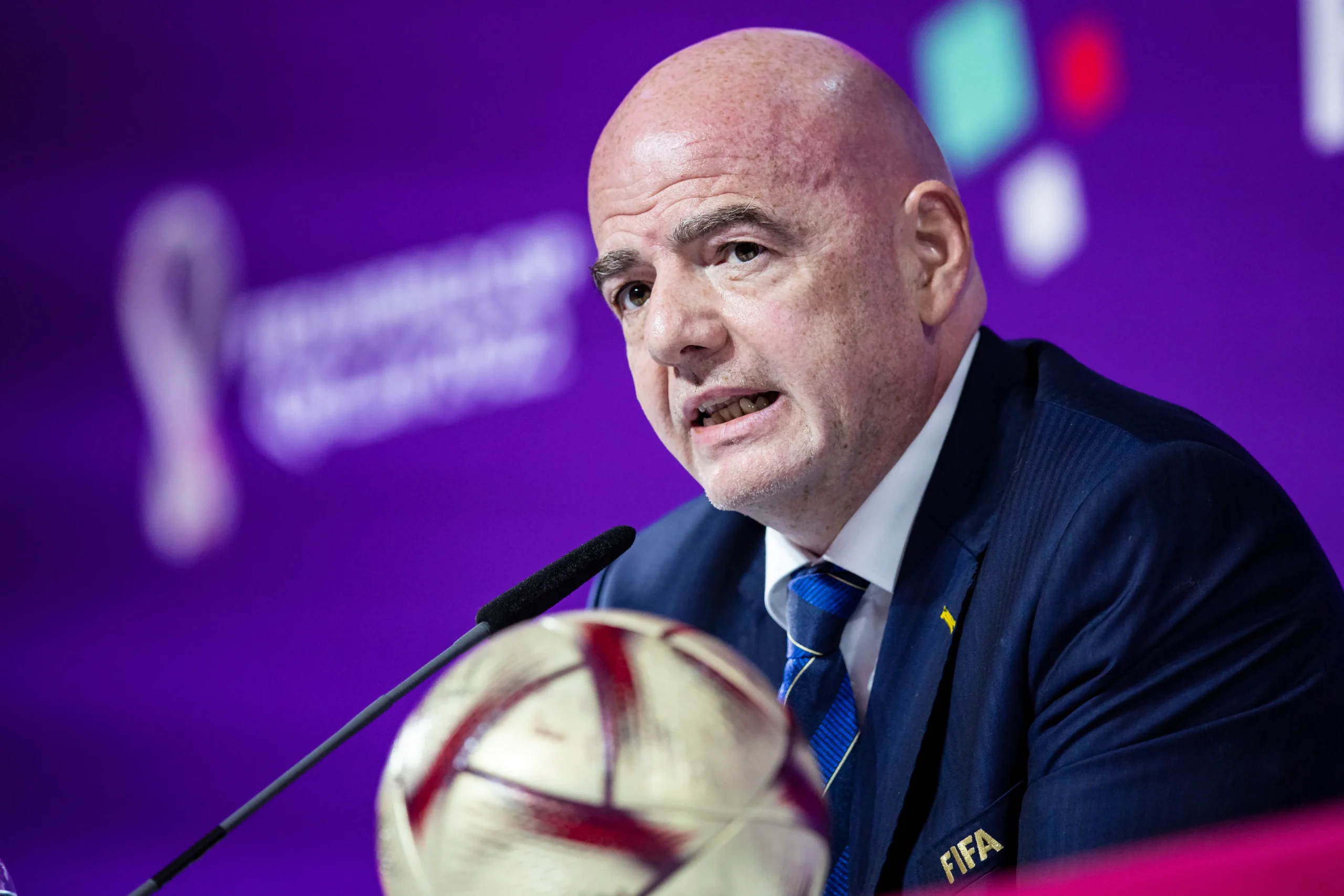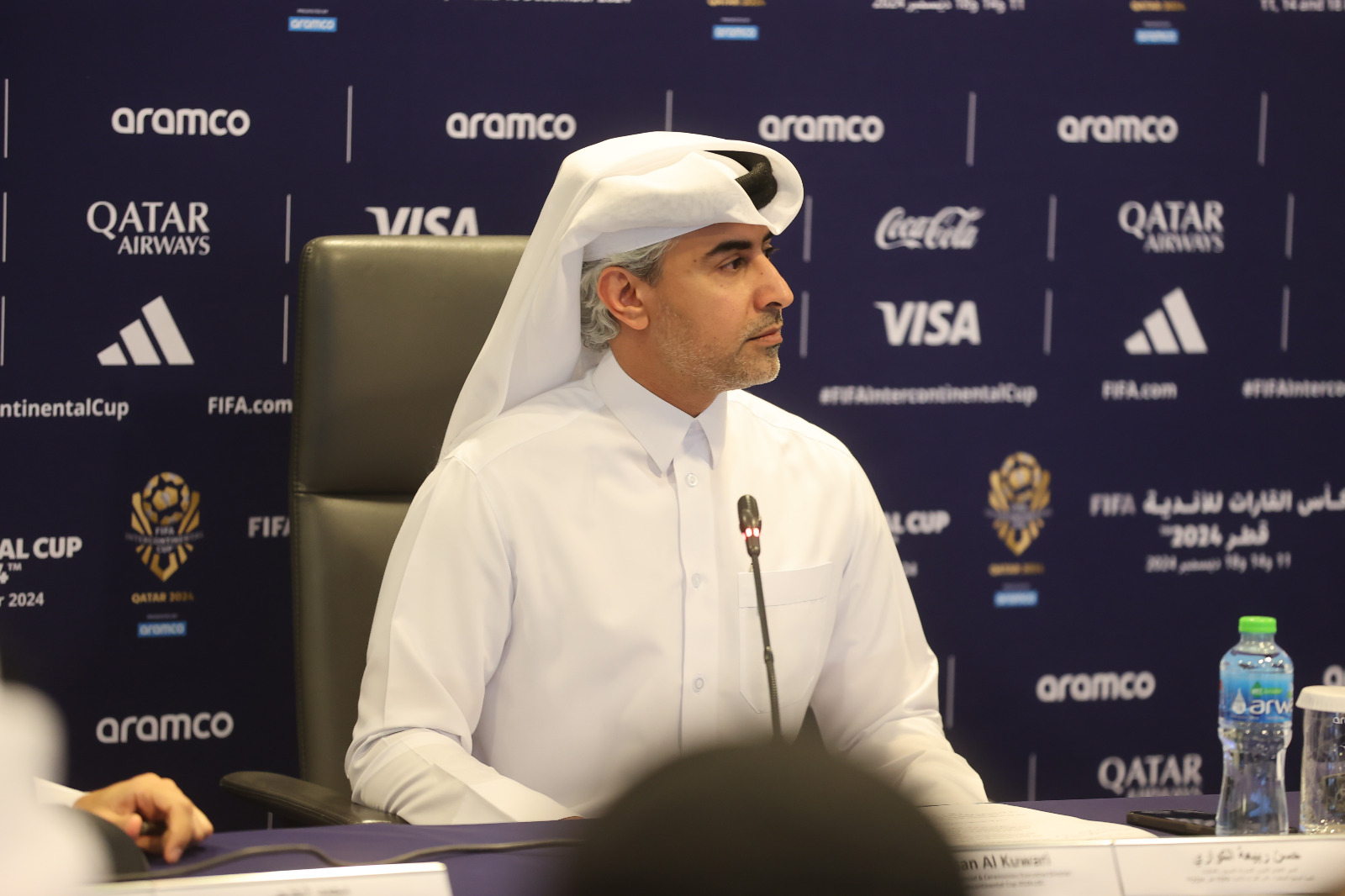
Preparations for Qatar’s 2022 World Cup are continuing to take shape following FIFA board members’ second official visit to the Gulf country this week.
Representatives from football’s governing body met with local World Cup organizers yesterday to assess what’s being done for the tournament, but still have not arrived at a decision about how many stadiums are needed for the games.
However, FIFA members did repeat a call for the Qatar government to “accelerate” reforms to protect the country’s blue-collar expats from abuse.
That includes making sure those working on construction projects unrelated to the World Cup – meaning the vast majority of workers here – are also safeguarded, they said.
Timeline
Work is currently underway on six of Qatar’s World Cup stadiums. The first, a refurbishment of Khalifa International Stadium, is scheduled to be completed late next year.

That puts Qatar’s stadium construction on schedule, according to FIFA officials, who say they expect all of Qatar’s World Cup venues to be completed by 2020.
“The timeline is great. (There is) no suggestion at the moment that there are delays to that timeline,” Colin Smith, FIFA’s director of competitions, said at press conference yesterday afternoon.
While Qatar’s bid included plans to use 12 new and refurbished stadiums, that figure is widely expected to be reduced to eight.
A final decision was supposed to have been made at yesterday’s board meeting between FIFA and Qatar’s local organizing committee (LOC), but was delayed to a future indeterminate date.
“A bid is a proposal, and is subject to change in conjunction with FIFA and discussions for ideal (stadium) locations, even ideal numbers,” Nasser Al Khater, the LOC deputy-CEO, told reporters.
Late last week, Qatar’s World Cup organizers named the seventh and eighth stadium locations.
One will be in Al Thumama, which is located west of Najma St. between E-Ring and F-Ring roads and was previously referred to as “Sports City,” while the other will be in Ras Abu Aboud, near Hamad International Airport and the Marriott Doha Hotel.
“It’s a very ideal, iconic location on the waterfront facing the Doha skyline,” Al Khater said.
Officials previously announced six other locations: Lusail, Al Khor, Al Rayyan, Education City, Al Wakrah and Khalifa International Stadium.
In addition to visiting five of those sites this week, FIFA officials also reviewed Qatar’s plans to transport large numbers of spectators, previously estimated to be approximately 1 million, around the country.
Officials say the compact nature of Qatar’s World Cup will be good for fans, who will be able to attend more matches than at previous tournaments.
However, Smith conceded that the plan also “throws up some challenges” and that FIFA is closely watching the country’s progress in constructing the Doha Metro and new expressways.
Workers’ welfare
The contractors building Qatar’s World Cup stadiums and training facilities are required to abide by worker welfare standards – dictating recruitment policies, payment terms, overtime provisions as well as accommodation requirements – that go beyond what’s required under Qatar’s laws.

Human rights advocates have said they welcome the standards, but still had questions about how extensively they would be enforced.
In a statement, FIFA’s acting secretary-general, Markus Kattner, said he was “encouraged” by the standards and was “working closely with the Supreme Committee to ensure that contractors comply with these standards throughout the entire construction cycle.”
But Kattner also repeated FIFA’s call for the Qatar government to apply those measures used on World Cup construction sites across the entire country:
“We also strongly urge the Qatari government to accelerate the labour reform process on a national level to ensure that such labour standards become legally required for all construction companies active in Qatar.”
Next steps
Yesterday’s meeting comes a week after US officials said 16 additional FIFA executives would face charges over racketeering, money laundering and wire fraud allegations.

The organization is in the midst of its second presidential election in less than a year after Sepp Blatter announced he would resign amid mounting corruption scandals just days after he was re-elected to a fifth term.
Meanwhile, FIFA secretary-general Jérôme Valcke, who represented FIFA when football officials visited Qatar for their first board meeting with Qatar’s local organizing committee in February, has also been suspended since September on corruption charges.
Board meetings between FIFA and Qatar’s local organizing committee are only scheduled to take place once or twice a year, but further discussions on specific technical matters are expected to be held early in the coming new year.

One issue FIFA will be examining in January is Qatar’s progress on constructing new hotels.
While the number of hotel rooms is climbing rapidly and currently stands at approximately 17,900 rooms, FIFA requires at least 60,000. Qatar promised 100,000 in its bid.
Last year, business consulting firm Deloitte said that constructing an additional 42,000 rooms would mean building some 210 new hotels, or 30 hotels a year for the next seven years. By contrast, Qatar’s previous peak was 12 new hotels completed in 2012, Deloitte said.
Earlier this week, however, tourism officials said “at least” 6,000 rooms for the 2022 World Cup would be provided on cruise ships docked at a redeveloped Doha Port, the Peninsula reported.
Thoughts?







